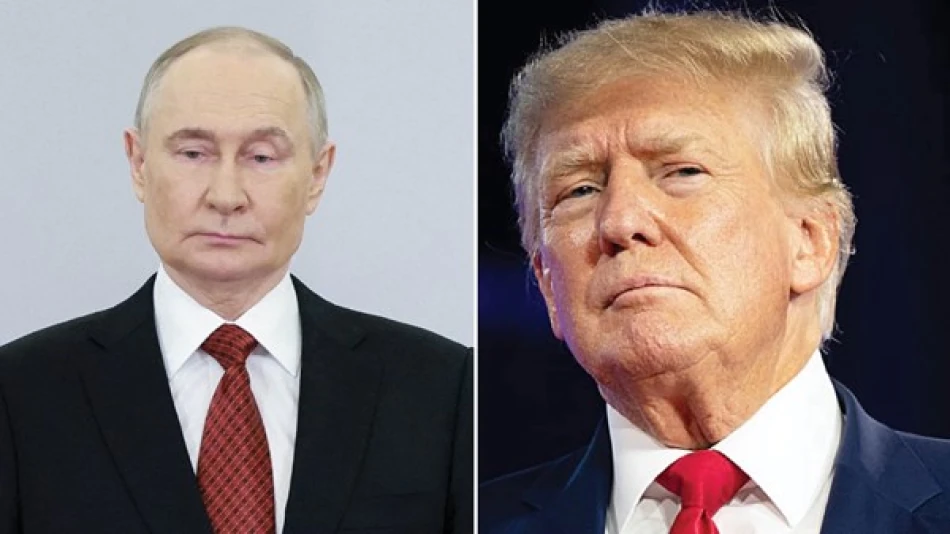
Russia Warns Against Efforts to Disrupt Putin-Trump Summit
Trump-Putin Summit Faces International Resistance as Ukraine Peace Deal Takes Shape
Russia's investment envoy has warned that unnamed countries will mount "enormous efforts" to sabotage the upcoming meeting between Presidents Donald Trump and Vladimir Putin, scheduled for mid-January. The high-stakes summit comes as both leaders signal they are close to brokering a ceasefire deal that could end the three-and-a-half-year Ukraine conflict—potentially at the cost of significant Ukrainian territorial concessions.
European Opposition Builds Against Territorial Compromise
Kirill Dmitriev, Russia's special envoy for investment affairs, accused unspecified nations of deliberately prolonging the war through what he termed "provocations and disinformation." His comments on Telegram reflect growing Russian concerns that European allies, particularly those who have invested heavily in Ukraine's defense, may actively work to derail peace negotiations.
The resistance is hardly surprising. Several European nations have spent billions supporting Ukraine's military efforts and view any territorial concessions as rewarding Russian aggression. Countries like Poland, the Baltic states, and the UK have consistently advocated for Ukraine's complete territorial integrity, making them likely opponents of any deal that legitimizes Russian territorial gains.
The Contours of a Controversial Deal
While specific terms remain undisclosed, the emerging framework appears to follow the pattern of "frozen conflicts" that Russia has successfully employed in Georgia and Moldova. Ukraine would likely be forced to cede control over significant portions of its eastern and southern territories—areas that Russia has spent enormous resources to capture and fortify.
This approach mirrors the 1994 Budapest Memorandum's failure to protect Ukraine's borders, but with a crucial difference: Trump's personal involvement could provide the political cover needed for such a dramatic shift in Western policy toward the conflict.
Market Implications and Economic Calculations
For investors, a Ukraine settlement represents both opportunity and risk. Energy markets are already pricing in potential sanctions relief on Russian oil and gas, while European defense contractors face uncertainty about sustained military spending levels. The reconstruction of Ukraine—regardless of its final borders—could unlock hundreds of billions in infrastructure investment.
However, any deal that appears to reward territorial conquest through force could destabilize other regions where similar conflicts simmer, from Taiwan to the South China Sea, creating new geopolitical risk premiums across global markets.
The Diplomatic Chess Game Intensifies
Kremlin aide Yuri Ushakov confirmed the summit plans, stating that both leaders would focus on "long-term peaceful resolution options for the Ukrainian crisis." His acknowledgment that the process "will be difficult" suggests Russia recognizes the domestic political challenges Trump faces in selling any compromise to Congress and NATO allies.
The timing is critical. Trump's early presidency offers a narrow window before midterm political considerations and potential military developments on the ground complicate negotiations. Both leaders have strong incentives to claim a diplomatic victory, but the durability of any agreement will depend heavily on European acceptance and Ukrainian compliance.
The success or failure of this diplomatic gambit will likely define not just the Ukraine conflict's trajectory, but the broader post-Cold War security architecture in Europe. With billions in reconstruction funds and regional stability hanging in the balance, the stakes extend far beyond the immediate participants.
Most Viewed News

 Layla Al Mansoori
Layla Al Mansoori






